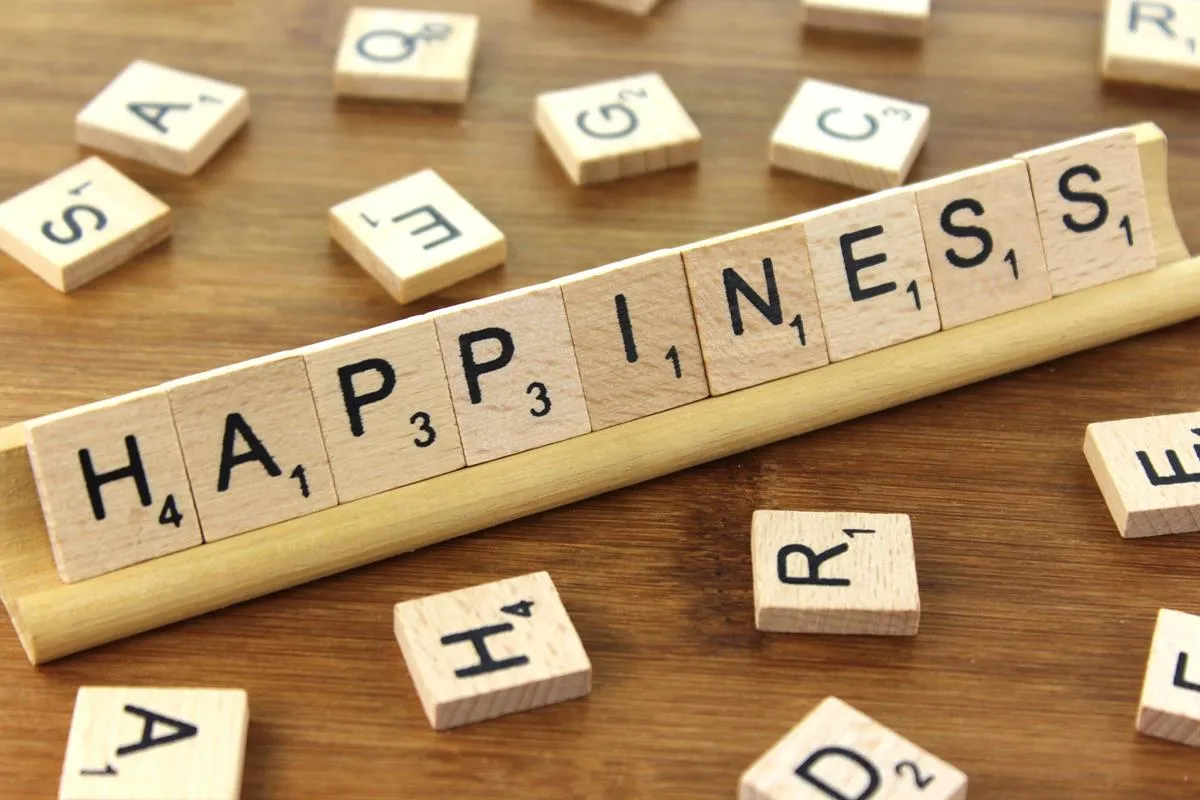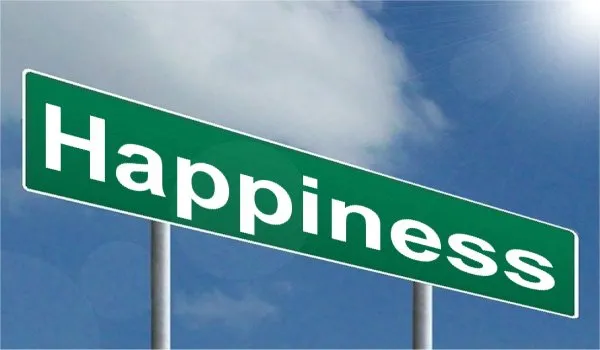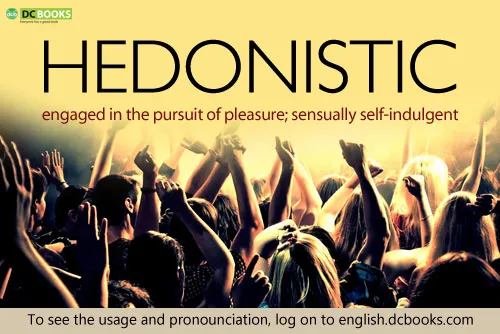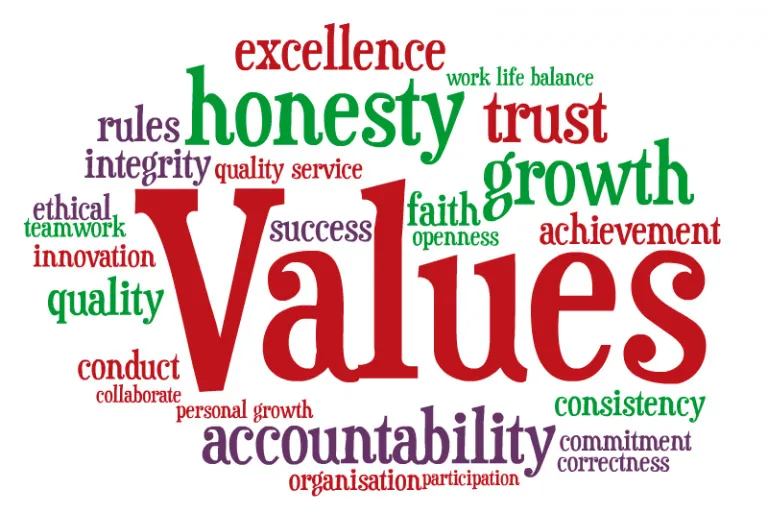Positive thinking is popular. It's been a booming business for over 20 years. Thinking negatively or experiencing negative emotions can put us into negative psychological and emotional states which can affect our physiological processes, like chemicals and hormones released in the body.

Source
Mind and Body
This can lead to imbalances in our bodies and produce negative physical effects. What affects the body also affects the brain and consciousness, but it also goes the other way. We can make ourselves sick. If you have ever had a panic attack, then you know how you can make yourself feel very ill, with symptoms like having difficulty breathing, nausea, fever, throwing up and even loss of consciousness by passing out. This is how powerful the feedback between our mind/consciousness and body can be.
The desire to think positively and avoid negative feelings, emotions or experiences can be strong. We fear getting sick or producing ill-health in our bodies. Naturally, no one wants to be ill. Positive thinking can induce happiness as a state of mind. Is this type of happiness authentic? And is there a better way to derive happiness from life than to induce positive emotional states by positive reinforcement of thoughts?
Happiness and related emotional states like excitement and joy are not stable and ever lasting. They come and go. Happiness is a flexible state of being, not permanent.

Source
Focus on Happiness and Pleasure
The downside of the positive psychology movement and positivity is when the focus that we strive towards is on being happy all the time. This causes us to seek out desires and appetites that produce happiness. We go chasing experiences that produce happiness or keep us entertained, excited and produce positive emotional states. Looking for something to do to keep us busy and excited, and not be "bored" with a "lack" of excitement or happiness.
In a focus on positivity we can also blind ourselves with rosy-colored glasses and unrealistic optimism.

Trying to be happy all the time can have us avoid various pain and suffering in life that helps us learn and grow, in favor of maximizing pleasurable sates of being we are attached to experiencing. Stress, sadness and anxiety in the short term doesn't mean we can't be happy in the long term overall.
Chasing happiness is often producing short lived positive emotional states of being that don't last. Then we keep looking for new pleasures and experiences to keep us "topped up" and feeling-good. We also avoid unpleasant or painful emotions or feelings that take us away from our attachment to that feel-good state.
There are two types of happiness to recognize: hedonistic and eudaimonic happiness.

Source
Hedonistic
From the Greek hedone, meaning pleasure, delight, enjoyment. It means to regard pleasure or enjoyment as a chief goal in life. The pursuit of pleasure, or the pursuit of happiness, is something many of us have heard as a guiding life motto or motivation for behavior. That's the delusion of the American Dream, which George Carlin has criticized in some respects:
It's a focus on feeling-good, seeking out experiences that provide us with positive sensations like pleasure enjoyment and gratification of our physical senses and psychological state. It's a focus, goal, objective, purpose and meaning of life based on activities that produce those states, such as focusing on being entertained, having a "good time", chasing adrenaline highs and constant "adventures" to provide personally pleasing experiences on the mild side, with partying, alcohol, drugs, sex, gluttony, etc. as an extreme.
Higher pursuits in life that can provide us with deeper meaning and value in the long-term -- like maybe the pursuit of truth and moral living -- come secondary. Instead of develop and raising our awareness, level of consciousness and state of being, many choose to focus on sensual pleasures and experiences to derive physical and emotional gratification.
Eudaimonic (or eudaemonic)
From the Greek eu + daimon: "good, well, the right, the good" + "guardian, guiding spirit". It means producing happiness or conducive to happiness. That's much different that pursuing happiness as a goal, objective or focus in life. Much in life produces happiness or pleasure, but it doesn't need to be our focus where we remain attached to things simply because of the pleasure we derive from them.

Source
The eudaimonic type of happiness is more fulfilling in the long term. This is where we pursue things of meaning and value in our lives that produce feelings of happiness as a by-product that comes and goes, instead of happiness and pleasure as the focus that motivates our behavior.
Overcome Adversity
Sometimes we will need to experience unpleasant feelings or experiences. Learning to bear with them temporarily in the short-term and learning to overcome our hardship can often lead to deeper positive emotional states of contentment or joy. We can learn and grow from the unpleasant aspects of life, and gain great meaning and value from learning about them.
A happy life is then not about avoiding hard times, but to be able to cope with adversity by being able to productively respond to it and grow wiser as a result. A recent study shows that coping with the death of a loved one, loss of job, or health crisis develops wisdom and insight. If we didn't learn about or experience any negative parts of life, we wouldn't learn from the negatives or learn from our mistakes in order to be wiser and know how to solve problems in the future or avoid them and know what not to do. That doesn't mean we have to do everything wrong in order to learn, but sometimes we need to fall before we can learn how to stand properly.

Source
Negative and unpleasant things can and do happen in life. This adversity can be good for us if we respond to it with resilience and work to overcome it. Letting it take us down and keep us down is not healthy, certainly. But we can take action in our lives and change things. Psychological flexibility to be able to handle the negative is key to greater well-being.
Transforming the Negative
Even traumatic events can act as a catalyst for profound change and transformation that we wouldn't have undertaken without it. People who go down the wrong path often refuse to see the error of their ways until they fall to rock bottom. Heavy drug or alcohol users often do this. The only way for them to change themselves is to fall hard enough to see the deplorable position they are in, and then rise against their false ways of living.
Feeling happy is impermanent, passing, temporary. But leading a happier life isn't about chasing pleasure or happiness to avoid the lack of unhappiness or pleasure, or compensate for any pain or unpleasant feelings or experiences. Leading a happier life is about finding meaning and value that allows us to grow as individuals.

Source
Greater Potential
We must face the positive and negative alike, the horror along with the beauty, the darkness with the light, both in the world and in ourselves, and transmute and sublimate that negative as way to reach greater heights and actualize greater potentials for ourselves and the world.
Using our strengths, some of which are developed from adversity, can help our own individual lives as well as help to contribute to something greater than ourselves. I pursue the meaning and value of truth and moral understanding in order to help myself grow and become a better version of myself. Learning and teaching about morality also helps to serve a greater purpose for to try to help and better all of humanity through more moral living.

Source
Thank you for your time and attention. Peace.
If you appreciate and value the content, please consider: Upvoting, Sharing or Reblogging below.
 me for more content to come!
me for more content to come!
My goal is to share knowledge, truth and moral understanding in order to help change the world for the better. If you appreciate and value what I do, please consider supporting me as a Steem Witness by voting for me at the bottom of the Witness page; or just click on the upvote button if I am in the top 50.

